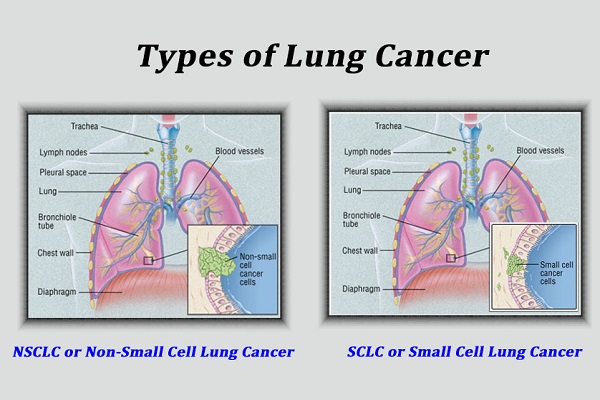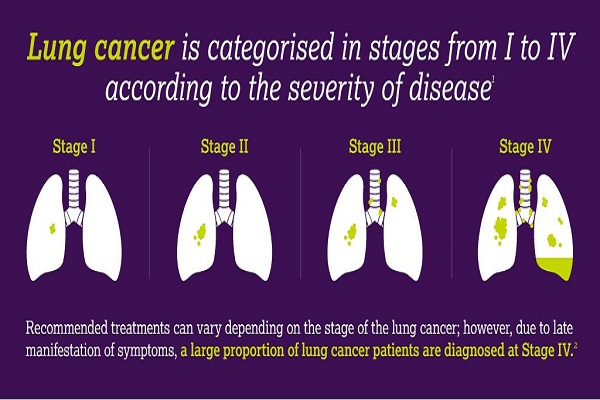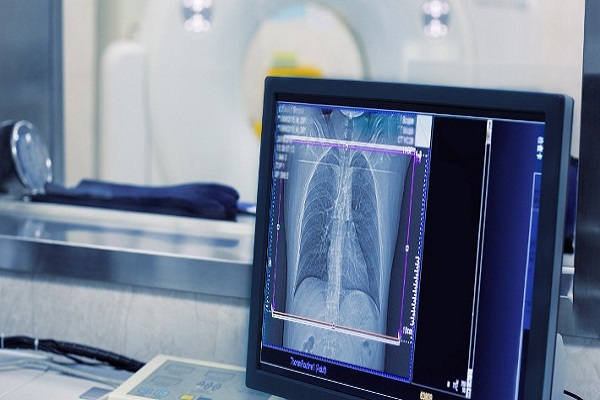Lung cancer is one of the most common and serious types of cancer. Around 22,000 new cases of lung cancer are recorded every year in Vietnam. According to the Centers for Disease Control and Prevention, it’s also the leading cause of death from cancer.
Lung Cancer
Lung cancer occurs when cells in the lung grow abnormally out of control and form tumors. Lung cancer is the leading cause of cancer-related death in the United States. Smoking causes the majority of lung cancer cases. Early stages of lung cancer may not produce symptoms; however, early diagnosis and treatment is important to ensure the best outcome. Lung cancer may be treated with surgery, radiation, and chemotherapy.
The Causes of Lung Cancer
There’s a common belief that only smokers can get lung cancer. That’s not true. While smokers are at higher risk, anyone can get lung cancer - even nonsmokers. In fact, 40% of Asians with lung cancer do not smoke3. That's because lung cancer can be caused by other things, such as second hand smoke, radon, and gene mutations.
What are the Symptoms of Lung Cancer?
The signs of lung cancer can be easily mistaken for the symptoms of flu or bronchitis, so it is important to be vigilant about your health. The earlier you catch lung cancer, the better. If you are Asian, or if you are age 55 or older, talk to your doctor if you have any of these symptoms:
- a long-lasting cough that does not get better
- a long-lasting cough that brings up blood
- sudden unexplained weight loss
- sudden lack of energy, or a feeling of being tired all the time
Types of Lung Cancer
Lung cancer can be divided into 2 types, Small Cell Lung Cancer (SCLC) and Non-Small Cell Lung Cancer (NSCLC). NSCLC is the most common - 85% of all lung cancer diagnoses are for NSCLC. These two types of lung cancers are treated differently, so it is important to determine the kind of lung cancer you have.
The subtypes of NSCLC
There are 3 subtypes of NSCLC, with adenocarcinoma being the most common (40% of all lung cancers) for both smokers and nonsmokers.

Staging NSCLC
If you are diagnosed with lung cancer, it’s very important to know what stage it’s in, so your doctor can determine the best treatment options for you. There are six stages of lung cancer:
-
Occult Stage
Hidden cancer cells are in mucus that is coughed up from the lungs.
-
Stage 0
The airways contain abnormal cells, which may have spread to nearby areas outside of the lungs.
-
Stage I
Early cancer is confirmed by the presence of a single tumor in the lung. At this stage, the tumor has not yet spread.
-
Stage II
At this stage, the tumor has spread to the lymph nodes on the same side of the chest or to other tissues in your chest. There may be two tumors in the same part of the lungs.
-
Stage III
At this stage, the cancer has spread to the lymph nodes in other parts of the chest or to other major organs in the chest, such as the heart or arteries.
-
Stage IV (also called “advanced stage” or “metastatic”)
At this stage, cancer has spread to other parts of the body and to organs outside the chest, such as the brain, blood, or bones.

Diagnosing NSCLC
Your doctors will perform many tests to confirm that you have lung cancer, to find out the kind of lung cancer that you have, and to determine the stage that the lung cancer has progressed in your body. These factors all determine your treatment plan.
A lung cancer diagnosis includes many tests that study your lung cells or tissue. A very common test is a lung biopsy, in which a piece of tissue from the lung is removed by a pathologist or thoracic surgeon, and examined for abnormal cells. Your doctor may also perform imaging tests that “take pictures” of your body, to determine if the cancer has spread to other parts of the body.
For more information on lung cancer screening, visit: https://cih.com.vn/en/internal-surgical-medicine/1797-lung-cancer-screening-and-prevention.html
Check out our different Screening Packages for different needs

Screening for Lung Diseases and Cancer
For appointment or screening service consultation, please contact:
- Ms. Võ Thị Mỹ Liên: (8428) 6280 3333, ext. 8424
- Ms. Nguyễn Thị Lệ: (8428) 6280 3333, ext. 8402
For appointment or more information about the services provided, please contact City International Hospital
- Operator: (8428) 6280 3333, ext. 0
- Address: Level 3, No. 3, 17A Street, Binh Tri Dong B Ward, Binh Tan Dist. (Next to AEON Mall Binh Tan). Ho Chi Minh City.
- Website: https://cih.com.vn/en/










